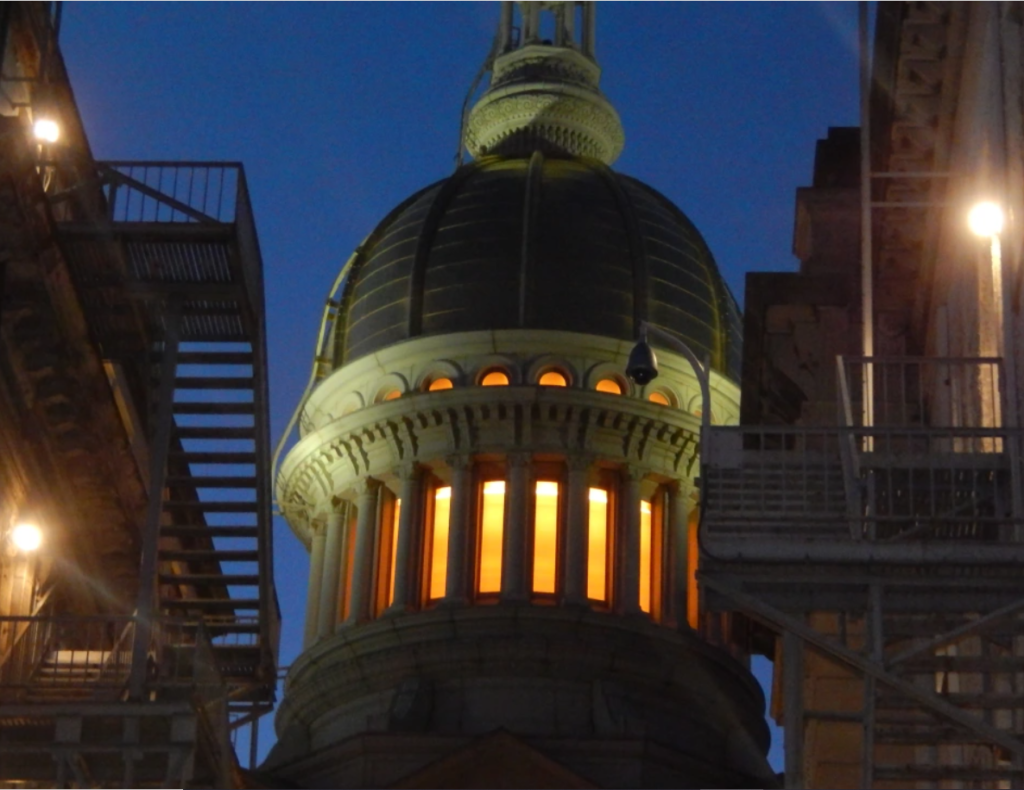Fight of the Week: Transparency Versus Nontransparency (Updated!)

A transparently untransparent and nefariously nefarious bill overhauling the Open Public Meetings Act (OPRA) would have gone before the Assembly Appropriations Committee today but for media intervention (see below). The only thing unpredictable about the bill is that even Trenton lawmakers knew better than to call it the "Even More Open Public Meetings Act," although the bill's allies act like they would have found such a title beneficial.
Barely disguised as an enterprise of efficiency, the bill (4045) "makes various changes to the law governing access to government records, commonly known as the open public records act, including the following":
modifies the conditions under which a records custodian has to respond to a request for records, allowing the custodian discretion to deny duplicative or anonymous requests;
encourages and allocates funds to assist public agencies in moving documents online, making these records searchable via an online database, to the extent feasible;
creates a uniform and comprehensive definition of “personal identifying information” which, in many cases, is redacted by the records custodian;
establishes specific timelines for responses to records requests occurring under various circumstances, such as when a record may be unavailable or in storage, and adds additional specificity and clarity to the items and information which are exempt from public access;
prohibits records requests made by or for data brokers, who take the information they gather and use it for a commercial purpose;
transfers the responsibility for violations from the custodian to the public agency, and allows, in limited circumstances, for the courts to issue a protective order to shield the agency from harassment;
alters the composition of the Government Records Council, adding more public members, establishing staggered five year terms, and annual salaries; and
establishes a Police Record Access Improvement Task Force to investigate the existing statutes governing public access to police records and develop recommendations for necessary changes to the law.
"New Jersey’s 22-year-old Open Public Records Act, OPRA, is an important public policy that has problems. Many of them are related to age, which has exposed difficulties in dealing with new technologies, the commercial demand for data, administrative complexity, costs, privacy concerns, and loopholes. It is widely acknowledged that OPRA needs fixing. Recent legislative hearings highlighted that. But debates about changes often involve accusations between parties, making productive discussion impossible. Reforms attempted in private by a few groups fail because they do not consider different viewpoints or unintended impacts. This causes more public distrust in government. But let’s start with this immutable truth: OPRA can and must be improved."
All well and good.
But that first provision of the bill alone:
modifies the conditions under which a records custodian has to respond to a request for records, allowing the custodian discretion to deny duplicative or anonymous requests
negates the act.
Much of the rest of A-4045 contains language sufficiently amorphous to turn the intention of OPRA against itself, or more pointedly, against the public.
All in the name, of course, of the public.
The hearing was scheduled for noon, today, Thursday, March 14th, prior to leadership's decision "to pause consideration of the bill."
New Jersey Working Families Party State Director Antoinette Miles issued the following statement:
We would like to thank Speaker Coughlin, Chairwoman Swain and the members of the Assembly Appropriations Committee for listening to the voices of countless advocates who have called for a pause in consideration of the poorly conceived OPRA bill.
A strong open records law is a cornerstone of democracy and has been critical to protecting taxpayer dollars and holding our elected officials accountable. We know that a rushed process will only damage public trust in our institutions.
We want to work with the bill’s sponsors and legislative leaders on a bill that addresses legitimate concerns around privacy and data harvesting while protecting the public’s rights to transparency and open government. Let’s use this pause to get it right.
###






The bill overhauling OPRA was a Democrat-Communist construct to hide the ongoing corruption, racketeering, extortion, fraud and other felony criminal activity going on in the Democrat-Communist controlled Legislature (for the past 25 years & since the inception of the computer election voting systems), the complicit Judiciary, and the Governor's office. We often read how the NJ Governor and the NJ Legislature are considered one of the most powerful in all of the states. In actuality the Governor's Office and the NJ Legislature are the most corrupt in all of the states (save for California, Illinois and New York). I remember when Gov. Christine Todd Whitman was running for her second term as NJ Governor. She requested support from Congress people from D.C. to come to New Jersey to help her campaign. Those Congresscritters were told by their handlers to not go to New Jersey--because the "dirt might rub off"!!!!!!!
I hope that the Governor declares the "transparently untransparent and nefariously nefarious bill overhauling " OPRA- "dead on arrival". As author/prime sponsor of the 2002 bipartisan success OPRA , I emphasize that this partisan secretive fast track should be derailed now. Otherwise ;The public will know that you ended their RIGHT TO KNOW!